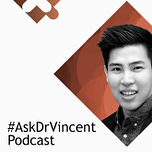With all the information out there about health, it’s easy to be misled by myths. Here, we’ll debunk eight of the most common health myths, so you can make informed choices for a healthier life.

1. Myth: All Fats Are Bad
Debunked: Fats are essential to a balanced diet, supporting brain health, hormone production, and energy. The key is to choose healthy fats, like those in avocados, nuts, olive oil, and fish, and to limit trans fats and excessive saturated fats, which can negatively affect heart health.
2. Myth: All Carbs Are Bad
Debunked: Not all carbs are created equal. Refined carbs (like white bread) can spike blood sugar, while complex carbs (like whole grains, fruits, and vegetables) are rich in fiber and nutrients. Carbohydrates are the body’s main energy source, so cutting them completely can lead to reduced energy and mood swings.
3. Myth: You Should Detox Regularly
Debunked: Detoxes promise to rid your body of toxins, but your liver, kidneys, and digestive system already handle this effectively. Eating a balanced diet with plenty of water supports these natural detox functions far better than extreme cleanses or detox kits.
4. Myth: Eating After 8 PM Causes Weight Gain
Debunked: Weight gain isn’t due to meal timing but rather total calorie intake. Eating late isn’t necessarily harmful; it’s more about what and how much you’re eating. If you’re hungry late, opt for light, nutritious snacks.
5. Myth: All Supplements Are Necessary for Health
Debunked: Supplements can help with specific deficiencies (like vitamin D or B12), but not everyone needs them. A balanced diet often provides all necessary nutrients. Consulting a healthcare professional is best to avoid unnecessary or harmful interactions.
6. Myth: You Need Sports Drinks for Hydration
Debunked: While sports drinks can help replenish electrolytes during intense physical activity, they’re usually not necessary for regular hydration. These drinks can be high in sugar and calories. For everyday hydration, water is usually sufficient. For light exercise, a balanced diet typically provides adequate electrolytes without the added sugar.
7. Myth: Organic Foods Are Always Healthier
Debunked: While organic foods can reduce exposure to certain pesticides, they aren’t necessarily more nutritious than conventional foods. Eating a variety of fresh fruits and vegetables is most important for a nutrient-dense diet.
8. Myth: Don’t Drink Water Before Meals
Debunked: Drinking water before meals can actually be beneficial. It helps with digestion and can aid in portion control by helping you feel full sooner. While some believe drinking before meals dilutes stomach acid, this isn’t generally true and won’t impact nutrient absorption in a balanced diet.
Health myths, if widely believed and followed, can have significant, lasting impacts on our health. Here are five ways these misconceptions can harm us over time:
Nutrient Deficiency and Imbalance: Myths like “all fats are bad” or “all carbs cause weight gain” encourage restrictive eating that eliminates essential nutrients. Avoiding healthy fats or carbohydrates, for instance, can lead to deficiencies in essential fatty acids or fibre, impacting brain function, digestion, and heart health.
Increased Risk of Chronic Disease: Some myths promote habits that may actually raise the risk of chronic conditions. For instance, overuse of detox cleanses can strain organs like the kidneys and liver, potentially contributing to long-term health issues. Likewise, substituting proper hydration with sugary sports drinks can increase the risk of diabetes, obesity, and cardiovascular problems.
Negative Impact on Mental Health: Many health myths fuel unrealistic expectations for weight loss or quick fixes. This can lead to frustration, poor body image, or even disordered eating behaviors, increasing stress and anxiety. Fad diets or detox trends often create a cycle of shame or inadequacy when they fail to deliver the promised results.
Delay in Medical Care: Belief in unproven remedies can delay professional medical treatment, sometimes with serious consequences. For example, relying on “natural” or “alternative” cures instead of seeking evidence-based medical advice can worsen underlying health issues, making them harder to treat later on.
Wasted Resources and Potential Toxicity: Health myths often lead people to spend money on products or supplements that lack real efficacy. Some detox products, miracle weight loss pills, or supplements can contain harmful substances or contaminants, which may accumulate in the body over time and contribute to adverse effects.
Understanding these risks highlights the importance of seeking credible health advice based on scientific evidence rather than popular but unfounded claims. Being informed protects our physical health and promotes better mental and financial well-being in the long run.
Best regards,
Dr. Vincent











Share this post